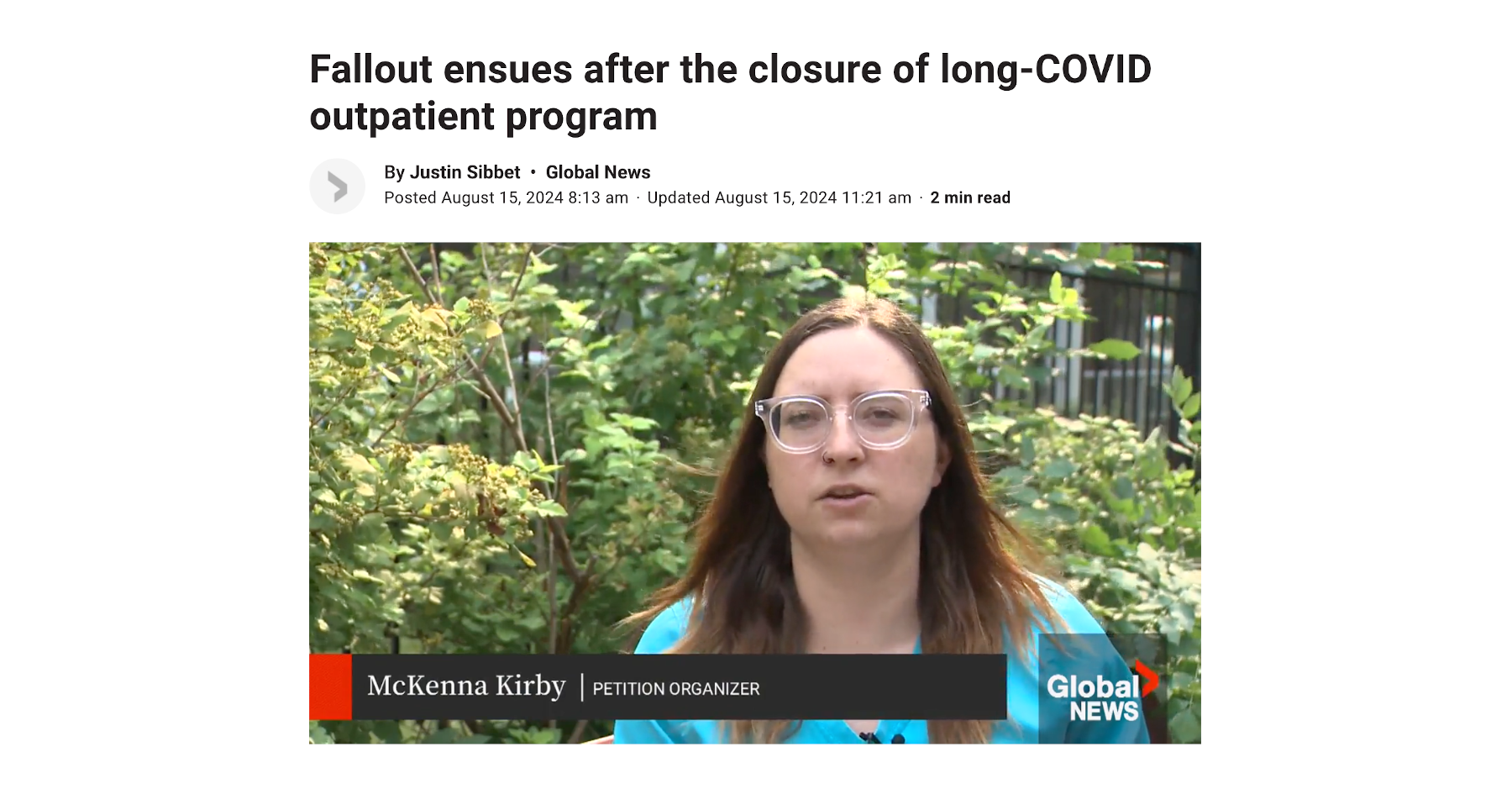Those suffering from long-COVID in Alberta are fighting back after the government informed them the Long-COVID Inter-Professional Outpatient Program was ending.
For some, COVID feels like a distant memory, a time when the world seemed to stop as everyone navigated the pandemic. Yet for many, it’s not in the rearview mirror, it’s still an ever-present reality and daily fight.
Jennifer Hare has had long-COVID for three years.
“Literally, my entire life is planned whereas before, I was a normal human being,” said Hare.
Comments closed

